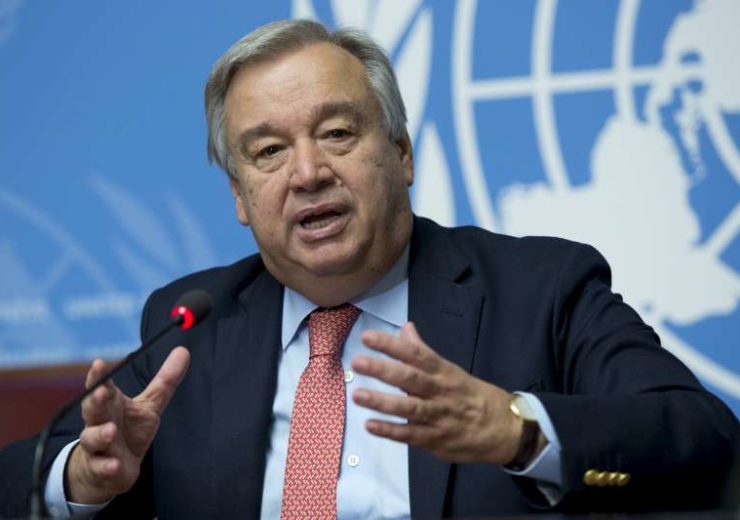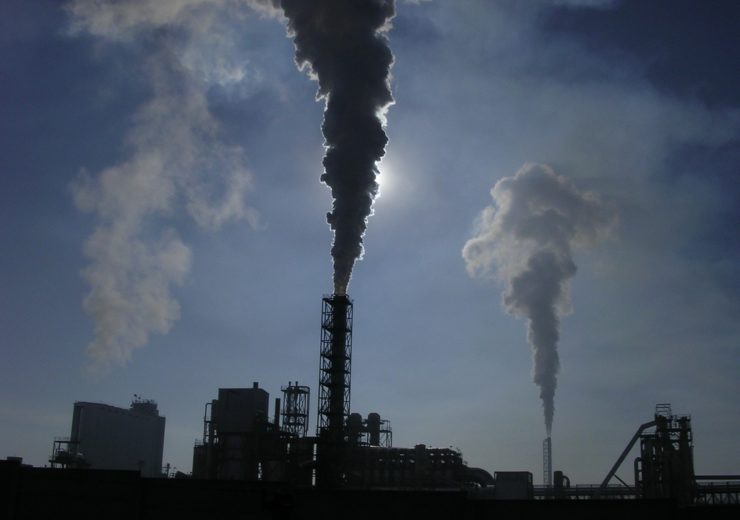Countries around the world have come under scrutiny from the public and regulatory watchdogs for the lack of concrete action they are taking to solve climate change

The UN Secretary-General António Guterres praised the work of the world's youth in holding the international community to account over climate change (Credit: UNHCR)
The battle to stop the climate crisis is one the world is currently losing, but can and must be turned around, according to the UN Secretary-General António Guterres.
Speaking at the UN Climate Action Summit, which began on 23 September, the 70-year-old stressed the importance of mass mobilisation among both the public and private sectors in adjusting operations to curb emissions, and the role of the world’s youth.
The UN summit is intended to accelerate worldwide efforts to limit the rise in global temperatures to 1.5C above pre-industrial levels, as per the targets set out in 2015’s Paris Agreement.
Guterres said: “Nature is angry and we fool ourselves if we think we can fool it because it always strikes back and is doing so with fury.
“July was the hottest month ever, June through August was the hottest summer ever in the Northern Hemisphere and second-hottest to date in the Southern Hemisphere.
“2014-2019 was the hottest five-year period ever, seas are acidifying, corals are bleaching, deserts are expanding, access to water is dwindling, natural disasters are multiplying and storms are raging the world over.
“Our warming of the planet issues a chilling cry to stop and if we don’t change our way of life we threaten life itself.
“When we see this we are not just seeing damage — it’s our future in the balance if we don’t act now.”
UN Secretary-General hopeful for world’s bid to solve climate crisis
The international community has come under scrutiny from the public and regulatory watchdogs for the lack of concrete action it is taking to solve climate change.
Among the most ambitious plans on a governmental level include targets to reach net-zero emissions by 2050, with multiple countries committing to carbon neutrality over the next three decades.
Yet even if the world were to halve its carbon emissions by 2050, a goal that most scientists agree would require a major acceleration with regard to international climate action, the science says there would still be a high chance of global warming exceeding 1.5C.
Guterres, however, remains hopeful: “The scale of the challenge in front of us doesn’t make me despair — I’m hopeful because of you — this is not a climate talk summit, or a negotiation — this is about action.
“The ticket to entry is concrete action and we’re here with the intention to reaffirm our commitment to the Paris Agreement.
“The young people here providing solutions and insisting on accountability are right — my generation has failed — we are losing the climate race but we can win it.
“Limiting to 1.5C will require fundamental transformations in all aspects of society, how we grow food and power our economies and transport our people — we need more justice and harmony between people and planet.”

Inaction will illicit the biggest cost — the climate race can be won
Despite global sentiment reflecting a strong desire to curb climate change, the fossil fuel industry, known to create high levels of carbon emissions, continues to receive massive financial investment from governments and companies alike.
A recent report by the International Institute for Sustainable Development went as far as to suggest between 10% and 30% of $372bn spent on fossil fuel subsidies around the world could be enough to cover its transition to clean energy.
The study based its findings on the examples of India, Indonesia, Zambia and Morocco, where concrete action to reform fossil fuel spending and implement more renewables has already been taken.
Another study suggested that despite a terawatt of recently-installed wind and solar capacity being introduced around the world, fossil fuels will still account for the vast majority of the global energy mix by 2040.
Energy consultancy Wood Mackenzie’s analysis indicates coal, oil and gas will cater for 85% of the world’s energy dependence by that date, compared with 90% today, with renewables only accounting for 8% of total power generation as of this year.
Guterres said: “There is a cost to everything but the biggest cost is doing nothing — funding a dying fossil fuel industry, keeping alive the coal industry — we are in a huge climate hole and we must stop digging.
“It isn’t common sense giving trillions of taxpayers money to the fossil fuel industry when it creates natural disasters, or funding the coal industry which is polluting our planet.
“It is my obligation and our obligation to stop the climate crisis before it stops us — time is running out but we can do it – let us lace up our running shoes and win the climate race for us all.”
